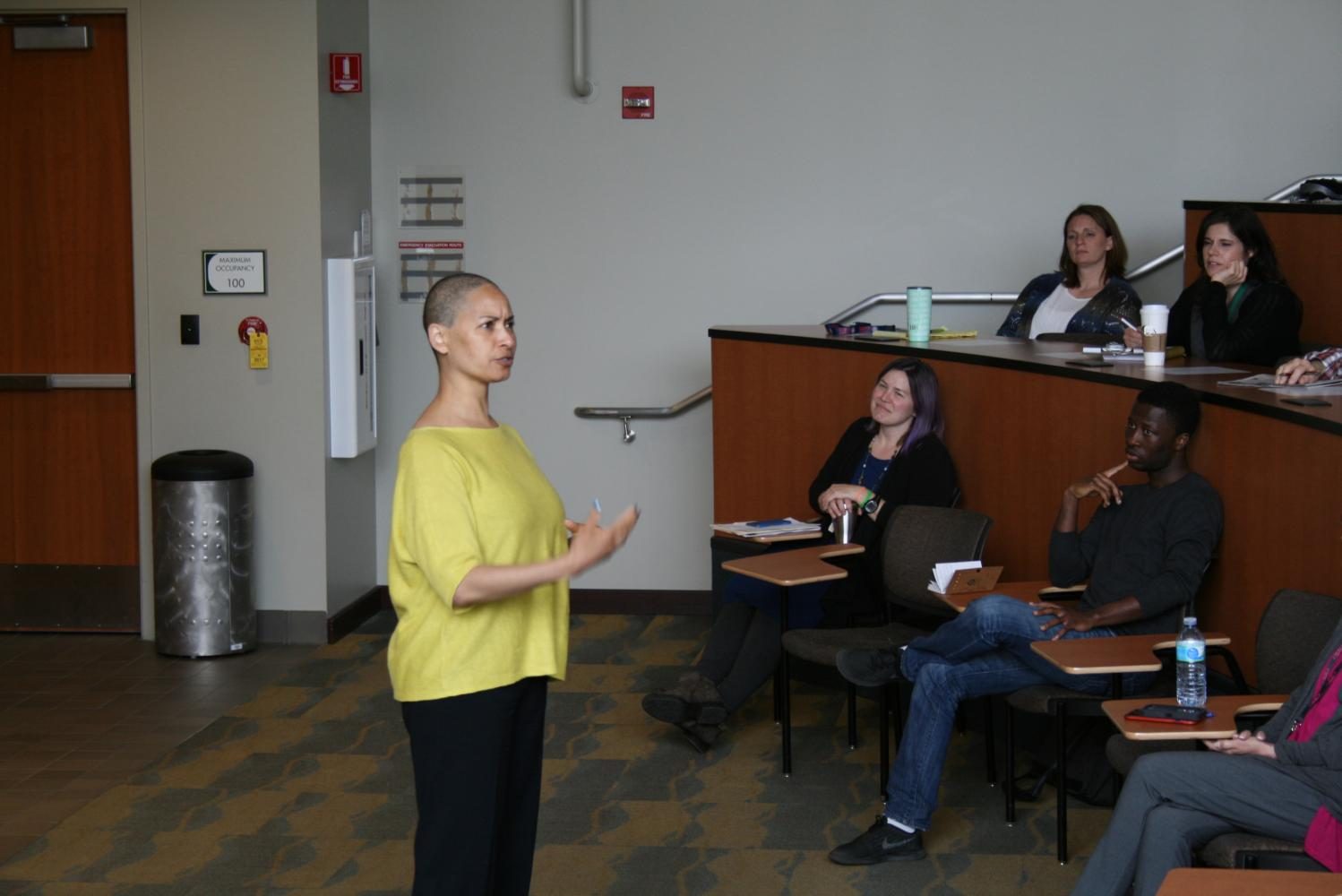State prisons in Illinois and education
EJP director Rebecca Ginsburg
April 26, 2017
No woman in any correctional center in Illinois has access to postsecondary education.
The state’s budget impasse forced four community colleges in Illinois to suspend their postsecondary education programs in prisons across the state.
“This situation should be getting headlines, it’s so shocking, until the budget situation gets resolved there won’t be any program at Decatur Correctional Center,” said Rebecca Ginsburg, director of the University of Illinois at Urbana-Champaign education justice project.
On the other hand, hundreds of men at the Danville Correctional Facility are currently benefitting from the University of Illinois at Urbana-Champaign postsecondary education being offered through its Education Justice Project.
This was the highlight of Ginsburg’s keynote address when she spoke at a Higher Education for Incarcerated Students symposium hosted by the College of DuPage Liberal Arts Division on April 21.
As the head of an initiative that caters to the educational needs of incarcerated students, Ginsburg said a program like the EJP has led to lowered recidivism, better employment outcomes for students and hope for incarcerated men. In Illinois alone, about 26,000 men and women return home every year from state prisons.
“That is an awful number of people that need to be incorporated and welcomed in,” added Ginsburg. “We don’t incorporate them; we don’t welcome them in.”
A program like the EJP provides skills for these incarcerated men to seek employment opportunities upon their release from prison. Students enrolled in the college program during their time in prison are able to transfer credits for courses they take during their time of incarceration to the university.
EJP goes a step further and provides scholarships for family members of incarcerated people. Many of people in prisons were breadwinners prior to them being incarcerated.
Ginsburg, in a Fall 2016 newsletter published by the EJP, expressed pessimism about the federal government threats aimed at rescinding executive orders that were signed by President Barack Obama. One Obama order mandated federal agencies to ban the box on employment applications that asked for applicants’ criminal histories.
“Research demonstrates that eliminating the box leads to hiring more individuals with records,” wrote Ginsburg.
Juveniles serving terms in prisons are also benefiting from efforts to have some level of education provided in state prison facilities.
Judy Davis, the superintendent of the Warrenville Youth Center mentioned how effective the Illinois School District 428 blended learning model has been. The model involves teachers as instructional leaders, students as active learners, and technology as an individualized content.
As of Mar. 2017, there was 384 youth in custody. As a result of educational opportunities available to these youth in prison, as of 2016, 40 received eighth-grade diplomas, 143 were awarded high school diplomas, 68 were awarded GEds and 3,764 GradPoint courses were completed.
Read more about the University of Illinois at Urbana-Champaign Education Justice Program here: http://www.educationjustice.net/home/


















